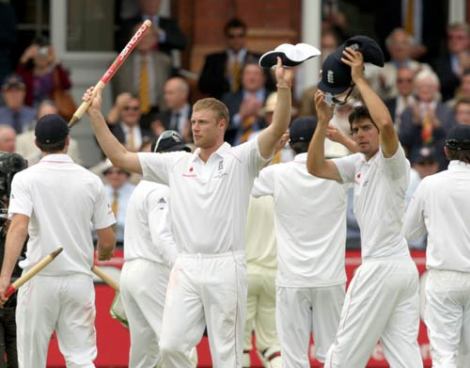Samir Chopra
Everyone is talking about The Oval, so I might as well get into the act
While believing this story about the modern cricketing game would certainly aid in the construction of a narrative that says 'unpredictable, divine genius' will always trump 'solid, old-fashioned, mechanical competence', it did nothing to help us
|
|
 |
There is nothing quite like having a fellow fan at hand to receive, amplify, and enhance, one's immediate, unvarnished take on a game of cricket
|
|
 |
On the cricketing field, it has provided some of the best cricket of recent years
|
|
 |
Still, whatever his problems as a captain, and a communicator, I like watching him when he steps on to the field; he is, as he might like to hear, "very good value."
|
|
 |
Flintoff is one of those poignant characters we might call the lost greats

| ||
To call Flintoff a 'great' Test cricketer is to admit him to an exclusive club whose membership has taken far more work, dedication, skill and longevity on the part of its members than Freddie has been able to show.
|
|
 |
I cannot bring myself to condemn the trips: the players who have been have spoken of the humbling and thought-provoking nature of the experiences, and they may well have benefited in wholly laudable ways
Given this dissimilarity, it would be nice if all of us could ease up on the "sport is war" analogy-making

| ||
my attitude is that if it doesn't cause offence, and it helps to assert the primacy of the international game, then I'm all for it
